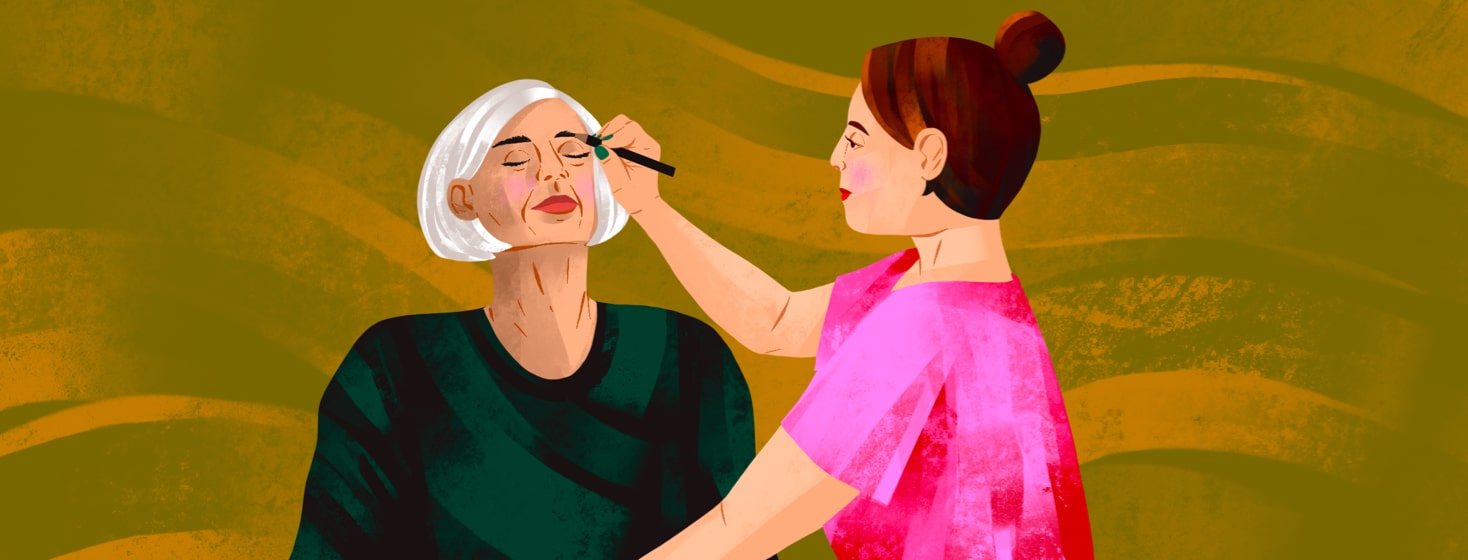Helping Your Loved One with Alzheimer's Maintain Their Dignity and Independence
Have you ever stopped to think about when was the last time your loved one did something? Like, when was the last time they dressed or did their own makeup?
So much of our loved ones are lost to Alzheimer’s over the years, and it can be hard to pinpoint when these losses occurred. With each loss, our loved ones lose a little bit more of their dignity and independence, thus relying on their caregivers to preserve it for them.
For as long as I can remember, my mom drew her eyebrows on with an eyebrow pencil, but in the beginning stages of Alzheimer’s, she began having trouble doing so. One day I went to her house to find her staring into the bathroom mirror, applying her eyebrows. She turned to look at me and innocently asked, “Do I look okay?”
She had drawn her eyebrows on so dark and so thick that I knew I couldn’t let her leave the house looking like that, but I also knew I couldn’t tell her the truth without breaking her heart. I told her she had done a great job, but I asked if I could help her fix them a little. She agreed and so I wiped the makeup off a little. In the end, I had found a way to preserve her dignity, by fixing her eyebrows before we went out, and preserve her independence, by allowing her to continue doing her eyebrows on her own.
Featured Forum
View all responsesMaintaining her independence with Alzheimer's
Issues like this were very common during the ten years my mom lived with Alzheimer’s. She wanted to do everything herself. She insisted on dressing herself even though she had trouble doing so. She refused to use a wheelchair even though she had difficulty walking. And she didn’t allow anyone to help her in the bathroom.
While it was frustrating at first, I realized she just wanted to maintain her independence for as long as possible. I loved that she was so fiercely trying to hold onto her independence, and I decided we would have to find ways to allow her to do so safely, while maintaining her dignity as well. That meant fixing her shirt if she put it on inside out or backward. That meant pushing an empty wheelchair alongside her in case she got tired of walking. And that meant standing just outside the bathroom door to give her privacy, while also being available to help if needed.
We allowed her to do things for herself for as long as possible, while always being there to help and preserve her dignity. We also tried not to point out any mistakes she made and we did our best not to correct them in front of her if they needed to be corrected.
With a little patience and a lot of empathy, it is possible to help your loved one maintain their dignity and independence for as long as possible. Don’t be afraid to get creative. Your loved one will appreciate it more than you know.

Join the conversation